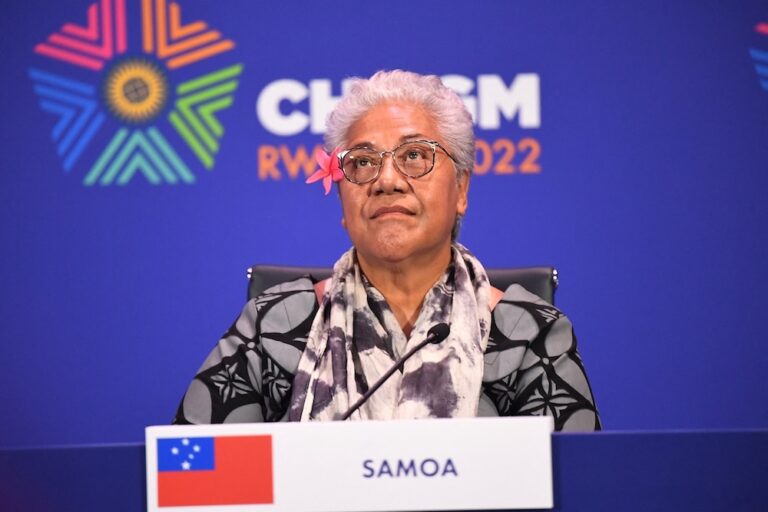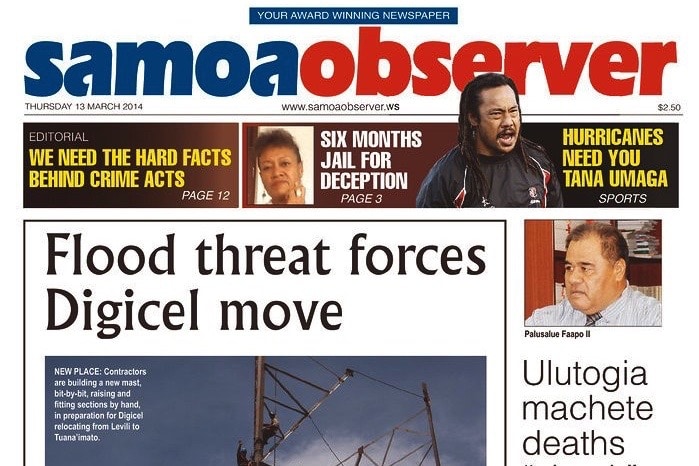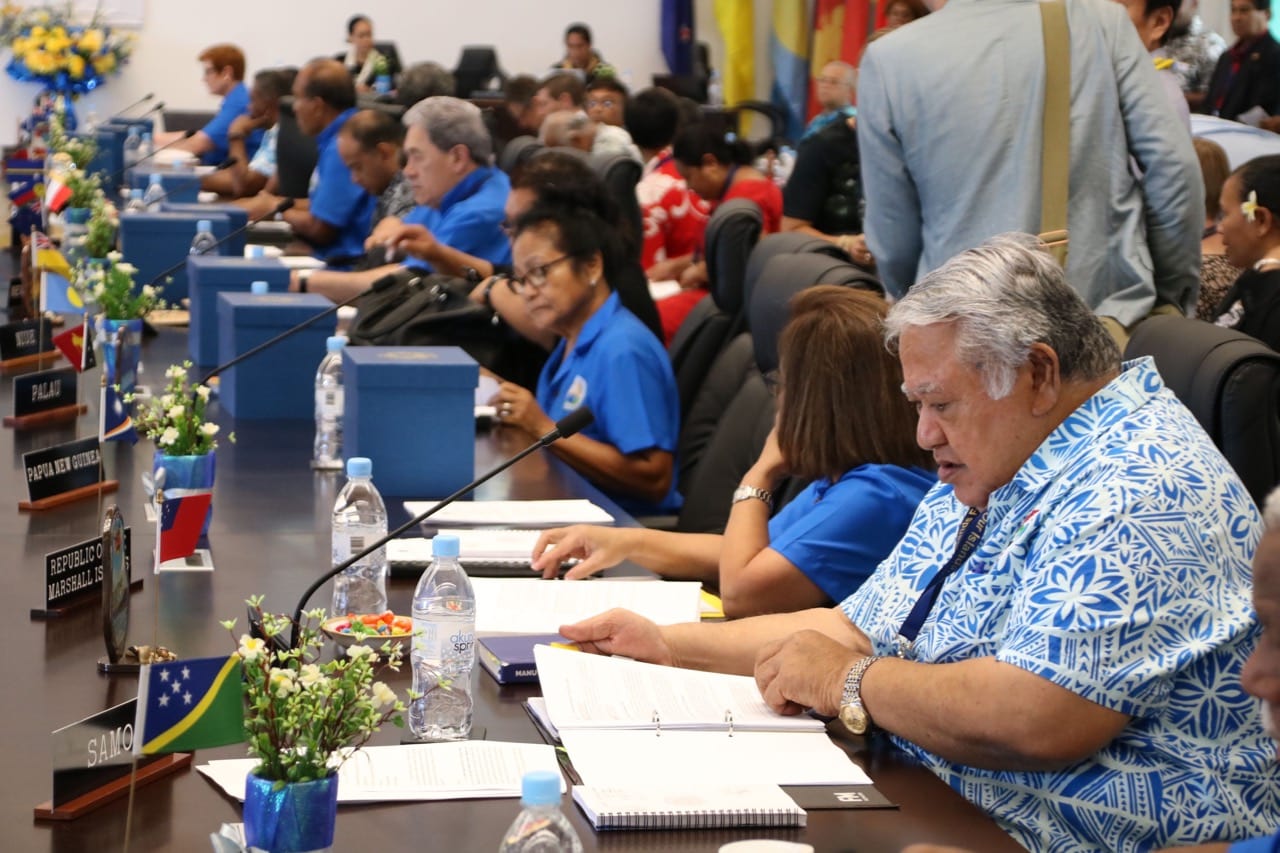(PINA/IFEX) – Samoa’s opposition leader, Tuiatua Tupua Tamasese Efi, has no intention of using government-run Televise Samoa and national Radio 2AP to air his views, but says there is a ban on him to gain political points, Samoa’s Prime Minister said on 15 March 1999. The independent “Tala nei” news service said Prime Minister Tuilaepa […]
(PINA/IFEX) – Samoa’s opposition leader, Tuiatua Tupua Tamasese Efi, has
no
intention of using government-run Televise Samoa and national Radio 2AP
to
air his views, but says there is a ban on him to gain political points,
Samoa’s Prime Minister said on 15 March 1999. The independent “Tala nei”
news service said Prime Minister Tuilaepa Sailele Malielegaoi said this
while giving evidence in the Supreme Court in a case brought by Tuiatua.
The
opposition leader alleges there is a government ban on him using
government
media, thus violating his constitutional right to freedom of expression.
**Updates IFEX alerts of 16 March 1999 and 31 October 1997**
“Tala nei” reported that Tofilau Eti Alesana, who was Prime Minister
until
November of last year, repeatedly said the opposition leader would never
be
given access to government media, until Tuiatua changed his ways and
stopped
“stirring up” the country.
Tuilaepa, who took over when Tofilau retired because of ill health,
confirmed this in court, and also confirmed that Tofilau had said that
the
opposition leader had to first meet with him before access to government
media might be granted. Tuiatua testified that this condition was
unacceptable and he never went to see Tofilau about it. If Tuiatua had
asked
Tofilau for access but was declined, “that’s the final proof (a ban
existed),” Tuilaepa told the court. He testified that there is no
written
record of any directive to heads of Radio 2AP and Televise Samoa to ban
the
leader of the opposition.
The director of Radio 2AP, Kika Ah Kau, and the chief executive officer
of
Televise Samoa, Leota Uelese Petaia, have both testified that there is
no
ban on the opposition leader – and they do not know what Tofilau meant
when
he stipulated that Tuiatua had to see him first before access can be
granted. Asked why former Prime Minister and Broadcasting Minister
Tofilau
would want Tuiatua to do that, Leota said, “I can’t answer that.”
Leota said that if a request for airtime was made to him by Tuiatua, “I
will
do the interview myself” – even though doing news was not really his
job.
“Tala nei” said that from Leota’s evidence, it appeared that the last
interview with Tuiatua screened by Televise Samoa was in June 1997, one
month after Leota was appointed Televise Samoa’s chief executive
officer.
Leota testified that no political topic of importance has been aired
because
his news staff was not fully equipped to handle hard and diverse issues,
having lost two senior staff and with the present ones just out of
school
with no journalistic training. They only cover “positive” events because
staff are not ready to handle “conflicts.”
In earlier testimony, Ah Kau also said Radio 2AP had not interviewed or
contacted Tuiatua because of a lack of resources and difficulty in
contacting him by phone. Ah Kau said the last time a statement by
Tuiatua
had been aired on Radio 2AP was in 1994, “Tala nei” reported.
Background Information
The opposition’s access to Samoa’s government media is severely
restricted.
Independent news media and journalists have faced increasing pressure
after
highlighting reports alleging growing corruption and abuse of public
office.
The only non-government radio station carrying local news, Radio
Polynesia
98FM, announced that it was temporarily suspending its local news
service
(see IFEX alerts of 3 March 1999).


